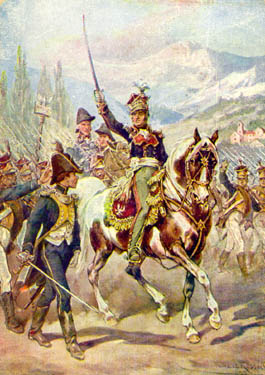The 80th anniversary of the Polish anthem
Mazurek Dąbrowskiego (Dąbrowski's Mazurka) is the Polish national anthem (since 26 February 1927), written by Józef Wybicki in 1797. Originally called the "Anthem of the Polish Legions in Italy", it is also informally known in English as "Poland Is Not Yet Lost" or "Poland Has Not Yet Perished" from its initial verse, "Jeszcze Polska nie zginęła."
The song originated during the formation of the Polish Legions in Italy under the command of General Henryk Dąbrowski. Józef Wybicki, a close friend of Dąbrowski, wrote it in Reggio Emilia between 15-21 July, 1797, to the tune of a mazurka. Beginning with the words, "Poland has not yet perished," it was a nationalist call to arms to save the Polish state which had fallen under foreign occupation.
The "Anthem of the Polish Legions in Italy" ("Pieśń Legionów Polskich we Włoszech") quickly became very popular with the Polish Legionnaires, but also gained wide currency within Poland. It became one of the most popular hymns during Poland's November 1830 and January 1863 uprisings.
=> Children sing the Polish national anthem
=> Polish national symbols
=> About Poland
A BRIEF HISTORY OF POLISH NATIONAL ANTHEMS
The song originated during the formation of the Polish Legions in Italy under the command of General Henryk Dąbrowski. Józef Wybicki, a close friend of Dąbrowski, wrote it in Reggio Emilia between 15-21 July, 1797, to the tune of a mazurka. Beginning with the words, "Poland has not yet perished," it was a nationalist call to arms to save the Polish state which had fallen under foreign occupation.
The "Anthem of the Polish Legions in Italy" ("Pieśń Legionów Polskich we Włoszech") quickly became very popular with the Polish Legionnaires, but also gained wide currency within Poland. It became one of the most popular hymns during Poland's November 1830 and January 1863 uprisings.
=> Children sing the Polish national anthem
=> Polish national symbols
=> About Poland
A BRIEF HISTORY OF POLISH NATIONAL ANTHEMS
